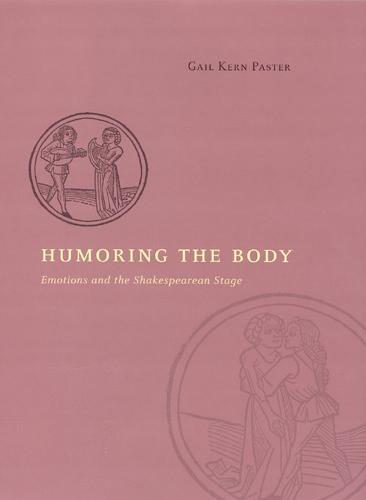Overview
Though modern readers no longer believe in the four humors of Galenic naturalism--blood, choler, melancholy, and phlegm--early modern thought found in these bodily fluids key to explaining human emotions and behavior. In Humoring the Body, Gail Kern Paster proposes a new way to read the emotions of the early modern stage so that contemporary readers may recover some of the historical particularity in early modern expressions of emotional self-experience. Using notions drawn from humoral medical theory to untangle passages from important moral treatises, medical texts, natural histories, and major plays of Shakespeare and his contemporaries, Paster identifies a historical phenomenology in the language of affect by reconciling the significance of the four humors as the language of embodied emotion. She urges modern readers to resist the influence of post-Cartesian abstraction and the disembodiment of human psychology lest they miss the body-mind connection that still existed for Shakespeare and his contemporaries and constrained them to think differently about how their emotions were embodied in a premodern world.
Full Product Details
Author: Gail Kern Paster
Publisher: The University of Chicago Press
Imprint: University of Chicago Press
Edition: 2nd ed.
Dimensions:
Width: 16.50cm
, Height: 1.90cm
, Length: 23.80cm
Weight: 0.598kg
ISBN: 9780226648477
ISBN 10: 0226648478
Pages: 288
Publication Date: 01 October 2004
Audience:
College/higher education
,
Postgraduate, Research & Scholarly
Format: Hardback
Publisher's Status: Out of Stock Indefinitely
Availability: Awaiting stock

Reviews
In an engaging and fascinating work, the author succeeds in restoring ''the historical particularity of early modern emotional self-experience'' in the plays of Shakespeare and others. . . . Not only has the author helped us reassess the uses of employment of the passions in early moderd drama, but she has reminded us that the daily experience of emotions in the early modern age was different from our own. --David A. J. Widmer Sixteenth Century Journal
Humoring the Body challenges our familiar understanding of the relationship between early modern subjects and their surroundings. Paster reveals a Shakespearean landscape saturated in feeling. . . . Paster''s book is lively, colourful and often very funny. Its most striking achievement is to reveal not only how Shakespeare''s men and women inhabited the world, but also how the world inhabited them in return. -- Katherine Craik Times Literary Supplement (01/07/2004)
In an engaging and fascinating work, the author succeeds in restoring 'the historical particularity of early modern emotional self-experience' in the plays of Shakespeare and others. . . . Not only has the author helped us reassess the uses of employment of the passions in early moderd drama, but she has reminded us that the daily experience of emotions in the early modern age was different from our own. --David A. J. Widmer Sixteenth Century Journal
Author Information
Gail Kern Paster is the former director of the Folger Shakespeare Library. She is the author of The Idea of the City in the Age of Shakespeare and The Body Embarrassed: Drama and the Disciplines of Shame in Early Modern England.




